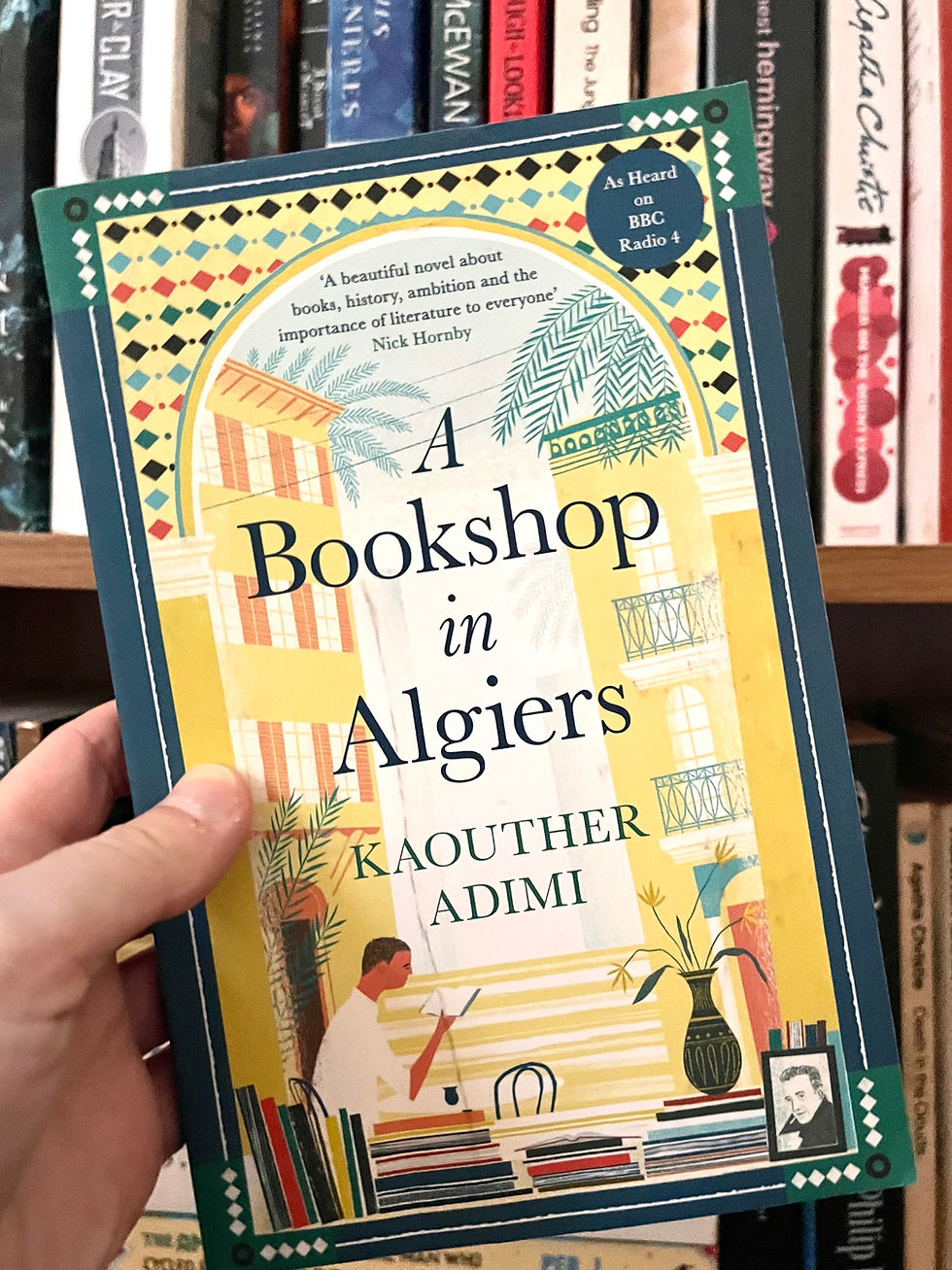A Bookshop in Algiers by Kaouther Adimi
- theworldthroughbooks

- Aug 24, 2023
- 2 min read
Updated: Jan 2, 2024

In 1936 a young dreamer named Edmond Charlot opened a bookshop in Algiers. It was the heart of Algerian cultural life, where Camus launched his first book and the Free French printed propaganda during the war.
Charlot’s bookshop has been closed for decades, surviving only as a government lending library. And now it is to be shuttered forever. But when a young man called Ryad has to empty it, he begins to understand that a bookshop can be much more than a shop that sells books.
A Bookshop in Algiers charts the changing fortunes of Charlot’s bookshop through the political drama of Algeria’s turbulent twentieth century of war, revolution and independence. It is a moving celebration of literature, bookshops and those who dare to dream.
I admit that I knew almost nothing of Algeria’s past before reading this book, other than that it was occupied by the French. I learnt from the book that the French in fact occupied Algeria for 132 years and that in the last few decades of that period there was considerable unrest between the Algerians and the French. I have now hastily read the Wikipedia page for Algeria and I have discovered that the unrest in Algeria continued beyond the end of the period covered by the book, and was pretty much relentless from 1945 to the end of the century.
With that background, the story in A Bookshop in Algiera is told in various narrative styles. It alternates between an omnipresent narrator who is part of the general Algerian public, then Edmond Charlot’s perspective in the form of diary entries, and Ryad’s perspective told in the third person.
Through those styles, we go through the turbulent events of the twentieth century described in the blub, alongside the development of Algerian literature at that time with leading authors of the day sending their manuscripts to Charlot for publication and sale.
All of this is anchored by the bookshop and, although it is closed by the time Ryad arrives at it, it is still there at the same address in Algiers.
This book packs a lot in. It would be possible to write full-length books on both the Algerian literary scene and the war and independence of Algeria but this is a short book covering both. Overall I thought that the tale was told effectively and efficiently, and I liked that it all revolved around the consistent bookshop. The only difficulty I had with it was that I found myself getting a little lost in all the names of the Algerian authors and their publications, not being familiar with many of them. That said, I Googled as I went along and discovered that there is a whole wealth of Algerian literature on the French occupation and the violent incidents that resulted from it. I knew that Albert Camus’s The Plague (although not mentioned in this book) is an allegory of the Nazi occupation of wartime France but it seems that he was by no means the only one writing in this way. I have a lot more reading to do about Algeria!



Comments